The latest edition of the Forbes Global 2000 followed the same pattern: most international rankings focused on large companies and their leaders overlook operators from Francophone Africa, who are small players on the global scale. However, inspiring journeys of leaders heading powerful regional groups abound. Here’s a closer look at some of the most iconic among them.
NORTH AFRICA
Othman Benjelloun
President of Bank of Africa
Morocco
Banking Industry

Othman Benjelloun, who has consistently ranked among the world’s wealthiest individuals, embodies entrepreneurial success in Morocco and beyond through his leadership at Bank of Africa. A prominent figure in Moroccan and African finance, he transformed the Moroccan Bank for Foreign Commerce (BMCE), now renamed Bank of Africa, into a major banking sector leader with a presence in over 20 African countries.
A graduate of the École Polytechnique of Lausanne, Benjelloun, born on December 9, 1931, in Fez, began his career in the family business before investing in various sectors, including steel, aluminium, and automobile assembly. In 1988, he acquired Royale Marocaine d’Assurance (RMA), founded by his father, making it a leading insurance provider in Morocco. This acquisition marked the beginning of a series of successes, including acquiring BMCE in 1995, propelling his group onto the international stage. This was followed by establishing Méditélécom, now Orange Morocco in 2016, further strengthening his influence in telecommunications.
Under his leadership, Bank of Africa stands out for its performance and expansion. In December 2023, the bank’s net banking product saw a 9% increase compared to December 2022, reaching 169 billion dirhams (around 15 billion euros). This strong performance reflects Benjelloun’s strategic vision, whose personal fortune is estimated at 13 billion dollars (1 billion euros) and who continues to steer the bank towards new horizons. He is also pursuing ambitious projects, such as constructing the Mohammed VI Tower in Rabat, set to be the tallest in Africa, consolidating his legacy for future generations.
Moulay Hafid Elalamy
Founder of the Saham Group
Morocco
Banking-Insurance
Loading...

The founder of Saham Group (which would later become Sanlam) and former minister, Moulay Hafid Elalamy, is a key figure in Morocco’s economy. A savvy businessman, he excels in striking big deals and acquisitions. Just months after acquiring Société Générale Morocco, he was appointed Chairman of the Board of Directors of the French group Teleperformance in August 2024, yet another accomplishment for this natural-born businessman.
Hailing from Marrakech and holding a degree in Information Systems from the University of Sherbrooke (Canada), he began his career as a senior advisor at the Ministry of Finance of Quebec before becoming director of information systems at an insurance company. Returning to Morocco, he joined ONA (now Al Mada) and founded Saham in 1995, which became a major player in sectors such as insurance, education, real estate, agriculture, and healthcare. Meanwhile, he headed the Moroccan employers’ association (2006-2009) and was appointed Minister of Industry, Trade, Green Economy, and Digital Economy in 2013. Elalamy left politics in 2021 to return to his original career, reclaiming his CEO role at Saham, intending to bolster its market position with the ambition to make it one of the world’s top three insurers. Renamed Sanlam in 2022, it acquired Société Générale Marocaine de Banques and La Marocaine Vie for 745 million euros. Operating in 33 African countries, it reported global revenues of 353 billion dirhams (around 320 million euros) at the end of June 2024, a 12% increase from the previous year.
Mohamed el-Kettani
CEO of Attijariwafa Bank
Morocco
Banking Industry

As CEO of Attijariwafa Bank, Mohamed el-Kettani has been a central figure in Francophone Africa’s banking landscape since 2007. The bank has transformed under his leadership, becoming Morocco’s largest private bank and the seventh-largest in Africa. In 2022, Attijariwafa Bank posted net banking revenue of 299 billion dirhams (about 28 billion euros), with consolidated net income of 91 billion dirhams (about 840 million euros), showcasing its financial strength.
El-Kettani has led Attijariwafa’s expansion into 26 countries, with investments exceeding one billion dollars in Africa. The bank employs over 20,000 people and acquired 15 banks between 2005 and 2016, reinforcing its presence in the West African Economic and Monetary Union (UEMOA) and Central African Economic and Monetary Community (CEMAC) regions. His strategic vision, inspired by King Mohammed VI, focuses on South-South cooperation and economic integration, aiming to boost intra-African trade and support sustainable development.
El-Kettani is also known for his commitment to innovation and infrastructure development, notably through the Africa Development Forum, which brought together over 2,200 participants in 2019. His leadership and ability to anticipate market trends make him an indispensable figure in the African banking sector.
Mahjoub Langar
CEO of Poulina Group Holding
Tunisia
Agribusiness / Real Estate / Construction Materials
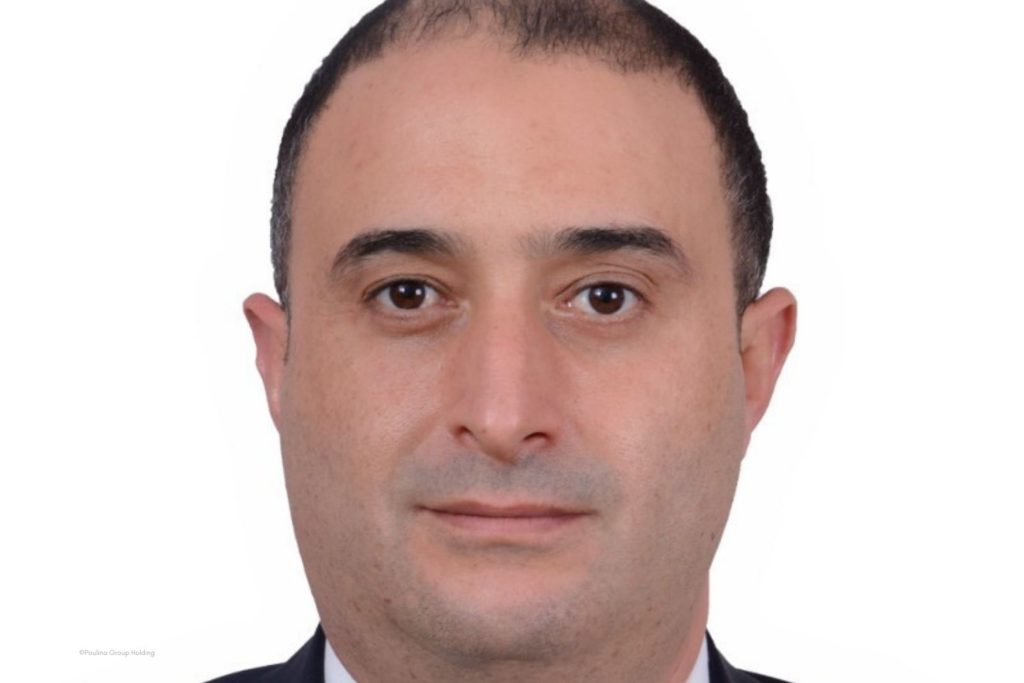
Poulina Group Holding (PGH), Tunisia’s leading private group, is a major industrial conglomerate active in agribusiness, real estate, and construction materials. Since 2014, Mahjoub Langar has been at the helm, bringing a renewed momentum to strengthen its leading position. With an international career background, Langar previously worked in Canada as a strategic advisor for various institutions before joining Poulina in 2014. Under his leadership, PGH optimized its investment products, growing from 24.2 million dinars (about 7.2 million euros) at the end of 2022 to 27.5 million dinars (around 8.2 million euros) in 2023. In January 2024, PGH achieved a record revenue milestone, surpassing 4 billion dinars (approximately 1.2 billion euros) for the 2023 fiscal year. This performance reflects the solid strategy implemented under Langar’s leadership, with the group’s net profit doubling to 129.6 million dinars (around 39 million euros) compared to 65.7 million dinars (around 19 million euros) in 2022. PGH continues to enhance its financial strength and demonstrate market dynamism while exploring new opportunities, including direct investments in renewable energy projects, particularly photovoltaic solar plants.
Malik Rebrab
CEO of CEVITAL
Algeria
Agribusiness / Industry / Services

Malik Rebrab is the CEO of Cevital, Algeria’s largest agro-industrial complex. Founded in 1976, Cevital is a major player in the Algerian economy with 26 subsidiaries across various sectors, including agribusiness, industry, and services. Born in 1971 and a graduate in management and finance from London University, Malik has worked mainly alongside his father, Issad, the group’s founder. Known as the “wisest” sibling, Malik has led Cevital since June 2022. Under his leadership, the group has expanded internationally while playing a key role in Algeria’s economic development. Rebrab is known for his entrepreneurial vision rooted in innovation and diversification, establishing Cevital as a pillar of the national industry. Recently, the group partnered with the Chinese giant Haier to manufacture and distribute household appliances in Algeria. Now the official representative of Haier, Cevital also acquired the French appliance manufacturer Brandt a decade ago.
WEST AFRICA
Jean Kacou Diagou
Founder and President, NSIA Group
Ivory Coast
Banking and Insurance

A prominent figure in African entrepreneurship, Jean Kacou Diagou is the founder of NSIA (New Inter-African Insurance Company), Ivory Coast’s first bank-insurance group. Born in 1948 in Abidjan and a graduate of the National Insurance School (ENASS, Paris), he began his career as head of the claims department at SIA, a Paris Union of Insurances (UAP) agency, later joining UAP’s Ivory Coast branch as general secretary and subsequently director of the African Union, a UAP subsidiary until 1983, before founding NSIA in 1995. The group, which has experienced rapid growth, now employs over 3,000 people across 12 Francophone, Anglophone, and Lusophone African countries. NSIA, combining banking and insurance, is a key player in Africa’s financial sector development, with an estimated 17% growth in consolidated revenue, amounting to 219 billion CFA francs (over 330 million euros) at the end of December 2019. Diagou, who co-authored the CIMA (Inter-African Conference of Insurance Markets) Code, is a significant figure in pan-African insurance and has chaired numerous sectoral and employer associations, including the Ivorian Confederation of Enterprises (CGECI) and the West African Employers’ Organization Federation (FOPAO). His contributions have been recognized with honors such as Commander of the National Order of Côte d’Ivoire and Officer of Gabon’s Equatorial Order. Outside his professional activities, he has composed and recorded several religious hymns and albums.
Samuel Dossou
Founder and President of Petrolin
Benin, Gabon
Oil Industry

Samuel Dossou-Aworet, born in Porto-Novo in 1944, grew up in Ivory Coast and pursued studies in Dakar before joining Paris’s National Petroleum and Engines School, followed by the French Institute of Petroleum. A former advisor to Omar Bongo on hydrocarbons, he built his wealth in oil through his company Petrolin, which recorded revenue exceeding 726 million euros in 2013. Founded in London in 1992 as Petrolin UK Limited and now headquartered in Geneva, Petrolin expanded by acquiring shares in African oil companies, including Niger Delta Exploration & Production (NDEP) in 2005. Petrolin is now the second-largest gas producer in Nigeria, controlling 40% of ND Western Limited, chaired by Dossou. In Nigeria, he also owns a 13.87% stake in Seplat, one of the country’s leading oil producers. A well-connected figure, he has chaired the Organization of Petroleum Exporting Countries (OPEC) twice and established himself as a key business intermediary in Dubai. He is also known for his influence in the railway negotiations between Benin and Niger. The Beninese-Gabonese billionaire, husband of Honorine Dossou Naki, former Gabonese ambassador to Paris, is also a shareholder in Bank of Africa, Orabank Gabon, and BGFIBank Benin.
Seydou Nantoumé
Founder and CEO of Toguna Agro-Industries
Mali
Agricultural Industry

Born in Ségou in 1965, Seydou Nantoumé grew up in Mali’s agricultural heartland alongside his father, who was involved in the fertilizer trade. At 30, he founded Toguna SARL, which later became Toguna Agro-Industries in 2007, a leader in fertilizer supply to the region (Mali, Burkina Faso, Guinea, Côte d’Ivoire). Since its inception, Toguna has been firmly established in its domestic market, with Mali as West Africa’s top fertilizer user, generating an annual revenue of 160 million euros in 2022. That same year, Toguna was selected by Mauritanian authorities to supply the agricultural sector with inputs, securing a contract to deliver 12,000 tons of urea valued at 10 million euros, making it Mauritania’s largest supplier. Competing with his main rival Doucouré Partner Agro-Industries (DPA), Toguna maintains a leading edge, winning tenders with the Malian Company for Textile Development (CMDT), the Burkinabe Textile Fibers Company (Sofitex), and FasoCoton in Burkina Faso. With the most advanced fertilizer production unit in the region, the group is also expanding its private sector sales, particularly in Senegal and Guinea-Conakry.
Idrissa Nassa
Founder and President of Coris Holding
Burkina Faso
Banking Industry
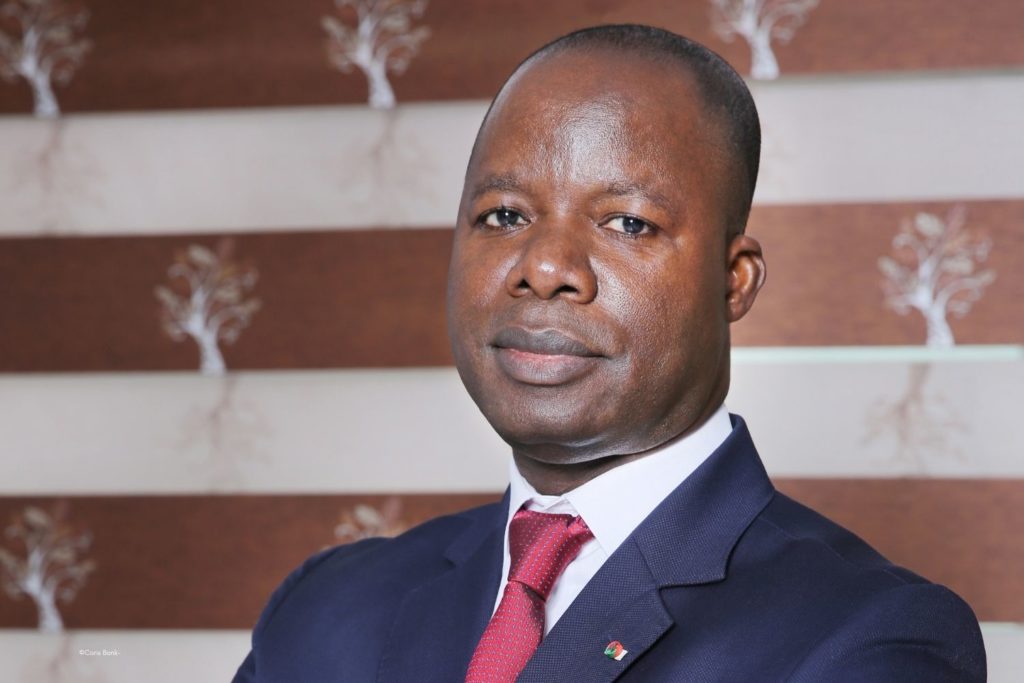
An icon of African finance, Idrissa Nassa, the founder of Coris Bank Group, recently made headlines with the celebration of his forty years in entrepreneurship. His journey, a hallmark of African success stories, began in 1984 at Ouagadougou’s grand market (Rood Woko), where he sold spare parts, rice, and sugar.
His venture into finance started in 2001 with the acquisition of Burkina Financial, a public credit institution in crisis, which he recapitalized and transformed into Coris Bank International in 2008. Thanks to his deep understanding of the local business world and its key players, the Burkinabe entrepreneur gradually established himself in the finance sector as the “SME banker.” He successfully replicated this model across the continent.
In less than 15 years, Coris has seen rapid growth both in Burkina Faso (with a 20% market share) and across the sub-region. Operating in ten African markets*, Coris ranked as the third-largest banking group in the sub-region by 2023, according to the Banking Commission of the West African Monetary Union (UMOA), with an 8.8% market share behind giants like Société Générale Côte d’Ivoire and the pan-African Ecobank group. Its main subsidiary, based in Burkina Faso (holding over 23% market share) and listed on the BRVM (Regional Stock Exchange, based in Abidjan) since 2016, achieved net banking income of 60 billion CFA francs (over 90 million euros) in the first half of 2024, with a profit of 33.5 billion CFA francs (over 50 million euros) in the same period. Last year, Coris’s financial results rose by around 14% to 64.2 billion CFA francs (98 million euros), while its total assets reached over 2,488 billion CFA francs (3.8 billion euros), reflecting a robust liquidity profile.
Additionally, Coris Holding, the entity overseeing the group’s subsidiaries, saw its net banking income grow to 264 billion CFA francs (over 400 million euros) by December 31, with the group’s total assets crossing the 5,860 billion CFA franc mark (8.9 billion euros) and a consolidated net income estimated at 102 billion CFA francs (155 million euros), closely rivaling Société Générale Côte d’Ivoire, the top bank in the West African Economic and Monetary Union, valued at over 550 billion CFA francs (nearly 840 million euros).
A savvy businessman, Idrissa Nassa, whose personal wealth is estimated in the tens of billions of CFA francs, ranks among the wealthiest individuals in Burkina Faso. As a diverse investor, he owns hotel establishments (Sopatel), a printing company, real estate ventures, and also engages in the agro-food industry with Afridia Industries, the producer of Malia juices in Burkina Faso.
*Côte d’Ivoire, Benin, Mali, Togo, Niger, Guinea-Bissau, Senegal, Guinea, Chad, Cape Verde.
Oumar Sow
President of the Executive Board of CSE (Sahelian Company of Enterprises)
Senegal
Construction and Public Works
Oumar Sow is a Senegalese businessman leading the Sahelian Company of Enterprises (CSE), a major player in the construction sector in Francophone Africa. Since assuming the role in 2015, he has transformed the company, originally founded by his father, Aliou Sadio Sow, into a regional leader.
Today, CSE’s ten subsidiaries generate a turnover close to 200 billion CFA francs (305 million euros) and employ nearly 5,000 people. Broadly, Oumar Sow has spearheaded a strategic diversification of the company’s activities, focusing particularly on the Senegalese market while pursuing an opportunistic expansion policy, such as in Sierra Leone. CSE has also won significant contracts, contributing, for instance, to the construction of the Blaise Diagne International Airport in Diass, the rehabilitation of the Ndioum-Thilogne national road, and the building of the regional express train (TER).
This series of successes has been largely built on Sow’s proactive approach and collegial management style, allowing the Senegalese construction giant to navigate successfully through a complex economic landscape, especially amidst security challenges in the Sahel.
A man of vision and impact, Oumar Sow is also an avid art enthusiast and is involved in philanthropic initiatives through the Alioune Sow Foundation, reflecting his commitment to the social and economic development of his country.
CENTRAL AFRICA
Paul Kammogne Fokam
President of Afriland First Group
Cameroon
Banking / Investment / Management Science Research and African Cultures
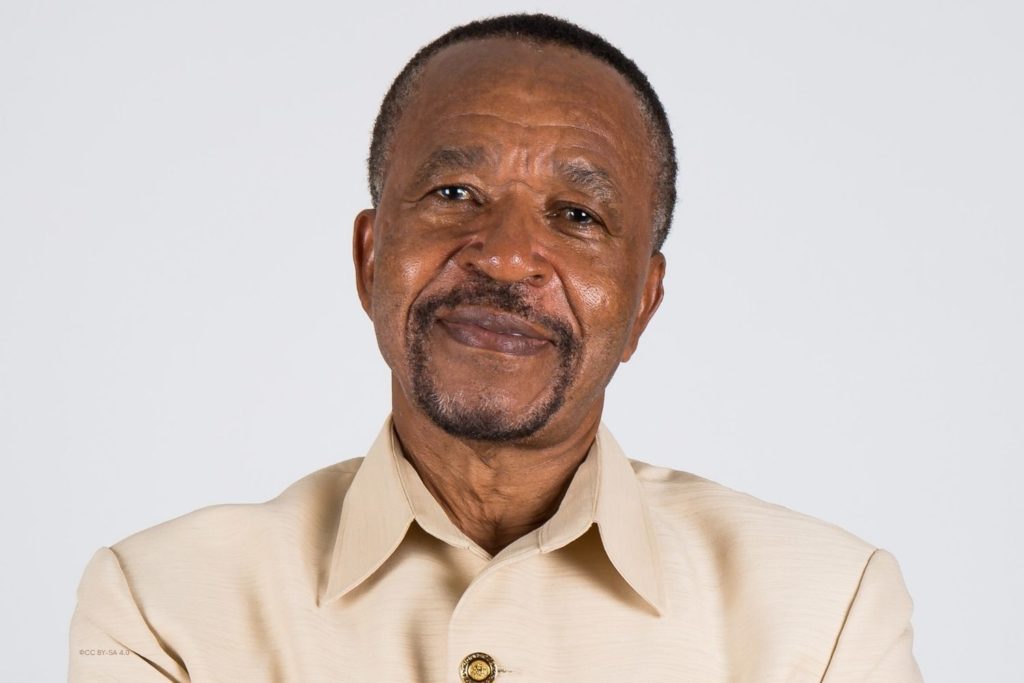
Paul K. Fokam, a 76-year-old industry leader, banker, entrepreneur, speaker, and researcher, is the president of Afriland First Group, founded in 2008 and headquartered in Switzerland. Afriland First Bank, the group’s flagship (with a capital of 50 billion CFA francs in 2022, approximately 76 million euros), operates in nine African countries and has representative offices in Beijing, Pointe-Noire, and Paris. Afriland Bourse & Investissement, a subsidiary of Afriland First Bank launched in 2019, engages in structured finance, brokerage, and financial engineering.
In the 1980s, Paul K. Fokam developed the MC² model, a universal approach to wealth creation for low-income populations*, making him one of Africa’s pioneers of impact investing. He believes poverty is not inevitable, and the informal sector is not a hindrance but a source of wealth creation. A researcher in management sciences, African cultures, and strategy, he advocates that Africa should rethink its educational system and approach to technology transfer. To support this, he established the PK Fokam Institute of Excellence, a university in Yaoundé focused on developing skilled, confident African leaders. He also founded the PK Fokam Prize for Science and Technology.
An author of numerous works and the recipient of many international awards, he was named a Knight of the Order of Merit of the Central African Economic and Monetary Community (CEMAC).
Victory over Poverty (VP) is achievable if the Means (M) and Competencies (C) of the Community (C) are combined. Hence, the formula VP = M x C x C = MC².
Richard Lowe
Founder and CEO of Activa Group
Cameroon
Insurance Sector
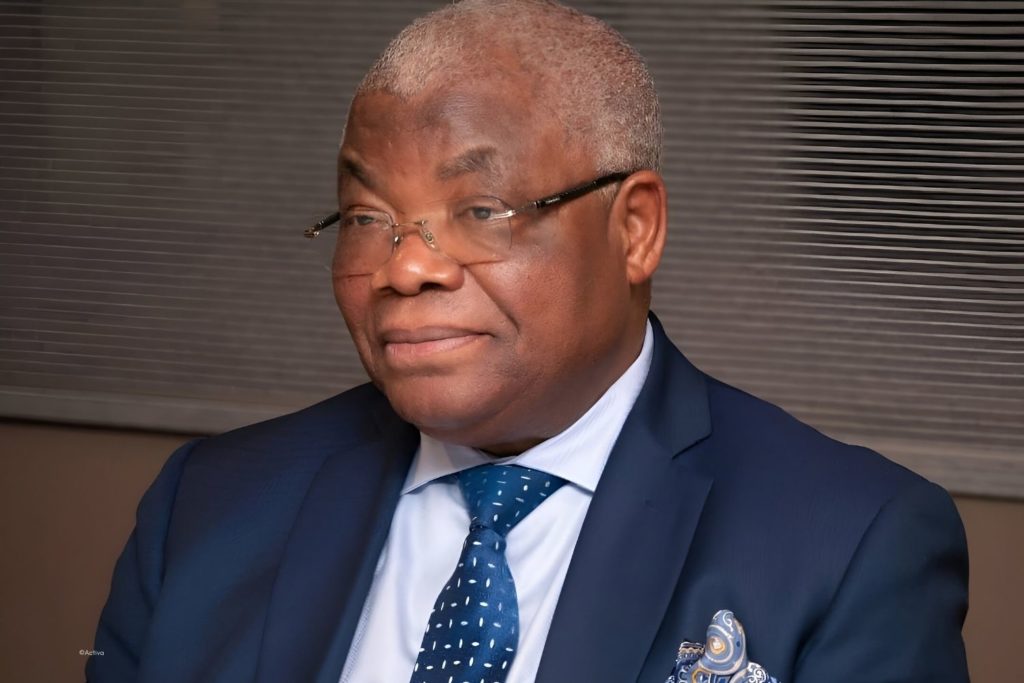
A notable figure in Africa’s insurance sector, Richard Lowe, 70, is a prominent entrepreneur from Cameroon. He expanded Activa Group across Africa, developing insurance and reinsurance services. A graduate of the ESSEC Business School, he worked for 17 years with AGF’s Cameroon branch before founding Activa in 1998 in partnership with Ivorian businessman Jean Kacou Diagou, CEO of NSIA. Activa, with a capital of 400 million CFA francs (600,000 euros), grew rapidly and amicably ended its partnership with NSIA in 2008. Now, with 11 companies and 700 employees across nine countries*, Activa is a leader in life and non-life insurance in sub-Saharan Africa.
Lowe is also the founding chairman of Globus Network, Africa’s first pan-African insurance network, offering insurance solutions in 49 African countries, and its captive reinsurance company, Globus RE, established in 2010. He was president of the African Federation of National Insurance Companies (FANAF) from 1996 to 2002 and sits on the boards of multiple financial institutions. In 2018, he was named “African CEO of the Year” at the African Insurance Organisation (AIO) General Assembly.
Cameroon, Côte d’Ivoire, Ghana, Guinea, Liberia, Democratic Republic of the Congo, Sierra Leone, Mauritius (Activa Finance, the group’s holding), France (Activa Europe, in Paris).
Henri-Claude Oyima
CEO of BGFIBank Group
Gabon
Banking Industry
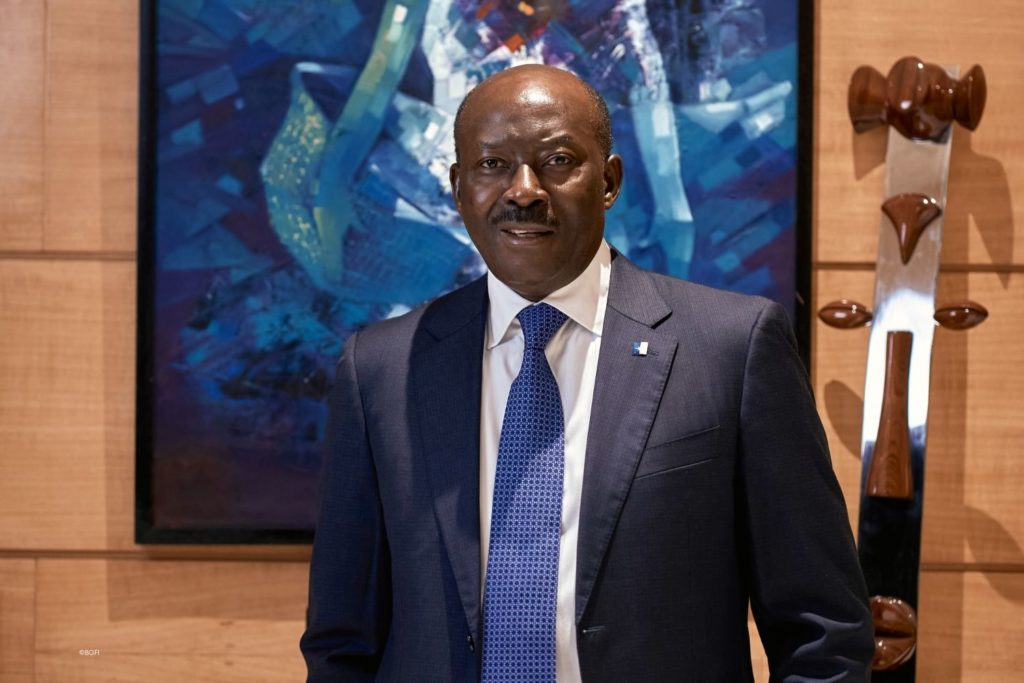
Born in 1956 in Franceville, Henri-Claude Oyima studied in the United States, earning a bachelor’s in administrative sciences and a master’s in banking from the University of Washington. He worked at Citibank in New York and Libreville before joining the Banque de Paris et des Pays-Bas branch in Gabon in 1983 as Deputy Managing Director and then Managing Director from 1985. He led the takeover of the bank, renaming it Banque Gabonaise et Française Internationale (BGFIBank) in 1996. BGFIBank, Gabon’s and Central Africa’s leading banking group, now operates in 12 countries with 20 subsidiaries*, 2,700 employees, and nine brands, reporting 2023 revenue of 303 billion CFA francs (462 million euros).
Over three decades, Oyima adapted the group’s strategy to a mature, complex market, expanding internationally. Since August 2022, he has chaired Gabon’s Employers Federation, whose members produce 80% of Gabon’s GDP and employ over 90% of its formal workforce. He also presides over the unified stock exchange of Central Africa (BVMAC), headquartered in Cameroon.
Benin, Cameroon, Congo, Côte d’Ivoire, France, Gabon, Equatorial Guinea, Madagascar, Central African Republic, Democratic Republic of Congo, São Tomé and Príncipe, and Senegal.
Mustafa Rawji
CEO and Board Member of Rawbank
Democratic Republic of Congo
Banking Industry
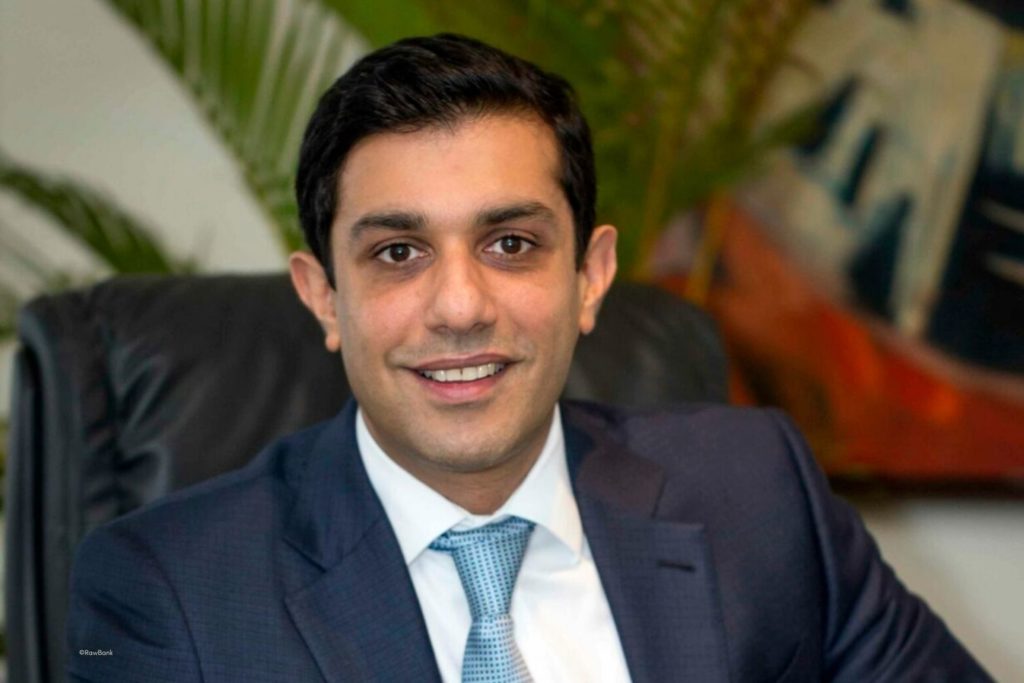
A fourth-generation member of the Rawji family, Mustafa Rawji studied at Babson College in Massachusetts (USA). He worked in trade finance at Crédit Agricole in Geneva, capital markets in Paris, and corporate banking with HSBC and Barclays. Appointed CEO of Rawbank in 2020, he spearheaded modernization and expansion, overseeing 1,810 employees in 120 branches and achieving historic 2023 revenue of $483.9 million (435 million euros), up 33.5% year-on-year, with net income of $191.4 million (173 million euros).
Nephew of Rawbank founder Mazhar Rawji, Mustafa previously served as Deputy Secretary General and Deputy CEO responsible for support and infrastructure. Known for his stance on financial inclusion and sustainable development, he actively supports female entrepreneurs. He also sits on the Atlantic Council’s International Advisory Board in Washington, DC, and is a member of the Africa Business Leaders Coalition under the UN Global Compact. Recognized by the Choiseul Institute as one of Africa’s “40 under 40” leaders, he founded the Congolese chapter of the Young Presidents’ Organization (YPO).
Célestin Tawamba
Founder and CEO of Cadyst Invest
Cameroon
Agri-food / Pharmaceutical Industry / Hospitality / Luxury Cosmetics

“To enable every African and Cameroonian to eat and receive healthcare for less than one dollar a day” is the mission of businessman Célestin Tawamba, 58, founder and CEO of Cadyst Invest, a powerful holding company active in agri-food, livestock, feed, pharmaceuticals, hospitality, and luxury cosmetics. Employing nearly 1,300 people, it reported cumulative revenue of nearly 120 billion CFA francs (183 million euros) as of December 31, 2022.
A graduate in finance from HEC Paris and the University of Paris-Dauphine, Tawamba worked as an auditor at Ernst & Young and as a financial director at the Lebanese-origin Hazim forestry group before founding La Pasta in 2001, specializing in pasta and flour production. In 2005, he acquired Panzani Cameroon, a subsidiary of the French Panzani group.
After venturing into agri-food, Tawamba moved into pharmaceuticals, establishing Cadyst Invest in 2006 and acquiring former Rhône-Poulenc laboratories and the Société Industrielle des Produits Pharmaceutiques (SIPP) in Yaoundé. He later founded Cinpharm in Douala’s Maképé suburb, the first generic drug manufacturing unit in Central Africa.
He chairs the Group of Enterprises of Cameroon (GECAM), the country’s main employers’ association, and since May 2018, the Union of Employers of Central Africa (UNIPACE) as well as serving as Vice-President for Central Africa of the Francophone Employers Alliance.
INDIAN OCEAN
Ylias Akbaraly
Chairman of Redland Company Holding
Madagascar
Industries
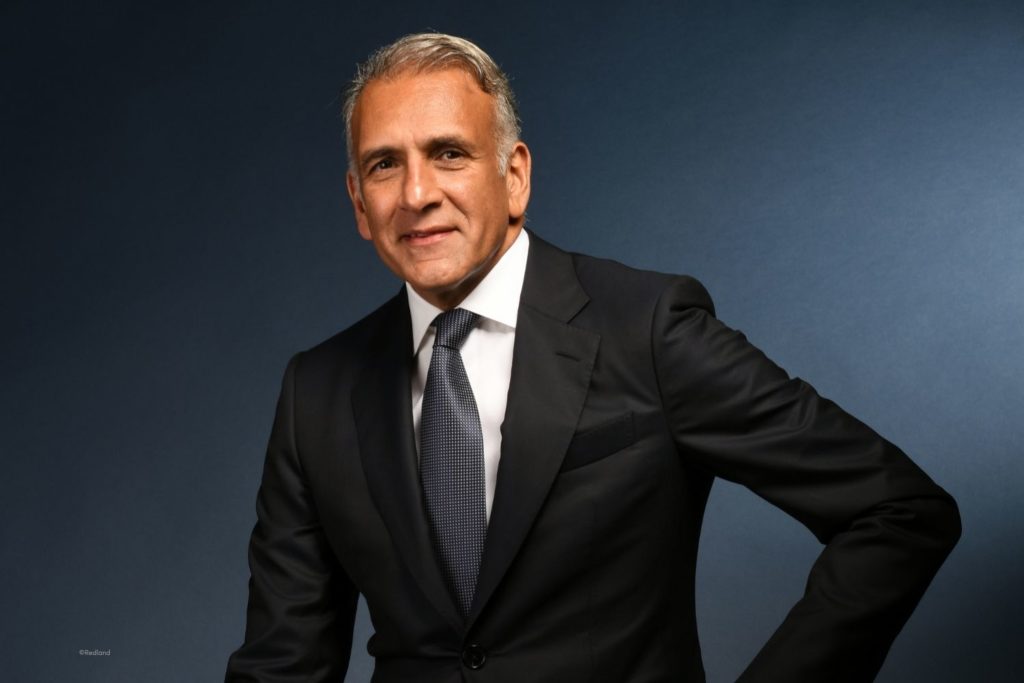
Born in 1959 in Antananarivo, Madagascar, to a family of merchants, and educated at the Business School of Paris and UC Berkeley (California), Ylias Akbaraly took over the family business in 2000, transforming it into a globally recognized conglomerate. Under his leadership, the group has diversified its operations across industries such as finance, energy, technology, tourism, aviation, real estate, and broadcasting. Among his achievements is the acquisition of Thomson Broadcast in 2018, renamed Phenixya, and more recently, GatesAir in 2022, consolidating his position in the global broadcasting technology market. GatesAir is now the number one in the U.S. in digital migration and radio, supplying equipment for all American TV networks.
Today, Redland employs over 5,000 people worldwide and is present in key markets across four continents. The group has also seen significant growth in real estate investment, with assets totaling over €1.2 billion. Additionally, major contracts are underway, including one valued at over €1 billion in digitalization, reinforcing Redland’s global market position.
In addition, Ylias Akbaraly is involved in philanthropic initiatives. With his wife, Cinzia Catalfamo, he founded the Akbaraly Foundation in 2008, dedicated to combating poverty and improving public health in Madagascar. Akbaraly is currently recognized as the wealthiest person in Madagascar and the fourth richest in Francophone Africa.
Guillaume Dalais
CEO of the CIEL Group
Mauritius
Textiles / Hospitality / Finance / Health / Agro-Industry
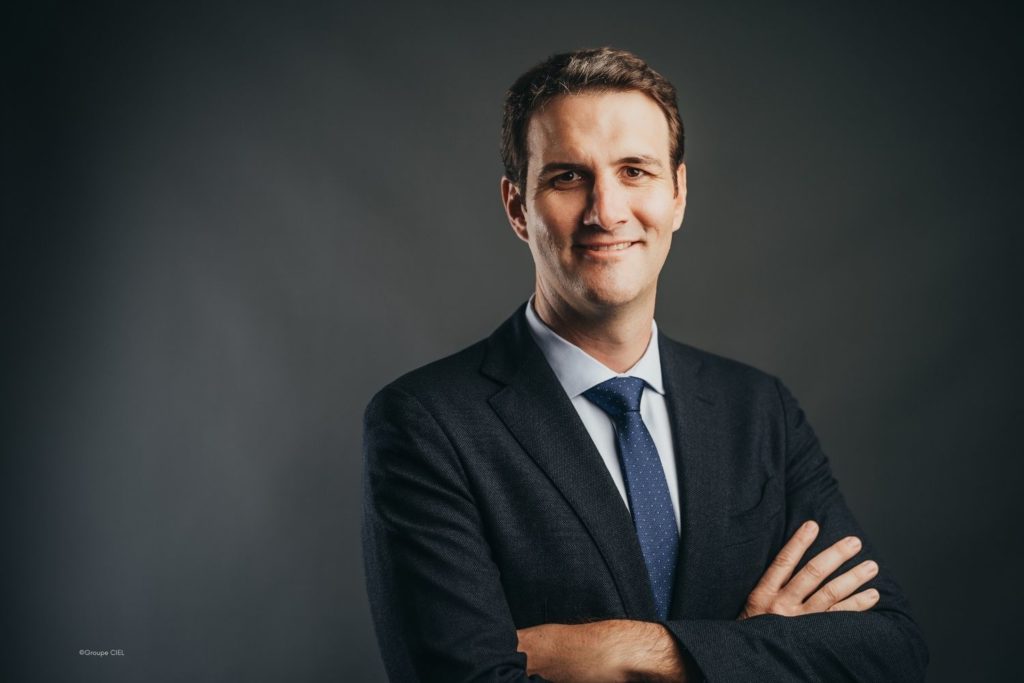
After a year and a half as Deputy CEO, Guillaume Dalais became Group Chief Executive of CIEL Group in July 2024. This family-owned company, which started in the sugar industry in 1912, has diversified into six key sectors (textiles, hospitality, real estate, finance, health, and agro-industry), with international reach and about 37,500 employees across ten countries in Africa and Asia. Today, CIEL is one of the main economic players in Mauritius and one of the largest publicly traded companies in the country. By June 30, 2023, its portfolio was valued at 21.3 billion rupees (about €431 million), with a market capitalization of around 11 billion rupees (over €222 million) and consolidated revenue of 35.4 billion rupees (nearly €757 million).
Trained in accounting and finance, Guillaume Dalais has an in-depth understanding of the group, where he has worked for over 15 years. His strategic role includes serving on the board of multiple subsidiaries, where he’s known for his entrepreneurial spirit and commitment to excellence. His vision is to drive CIEL toward sustainable growth while preserving its culture of innovation.
Hassanein Hiridjee
CEO of Axian Group
Madagascar
Telecommunications / Financial Services / Fintech / Energy
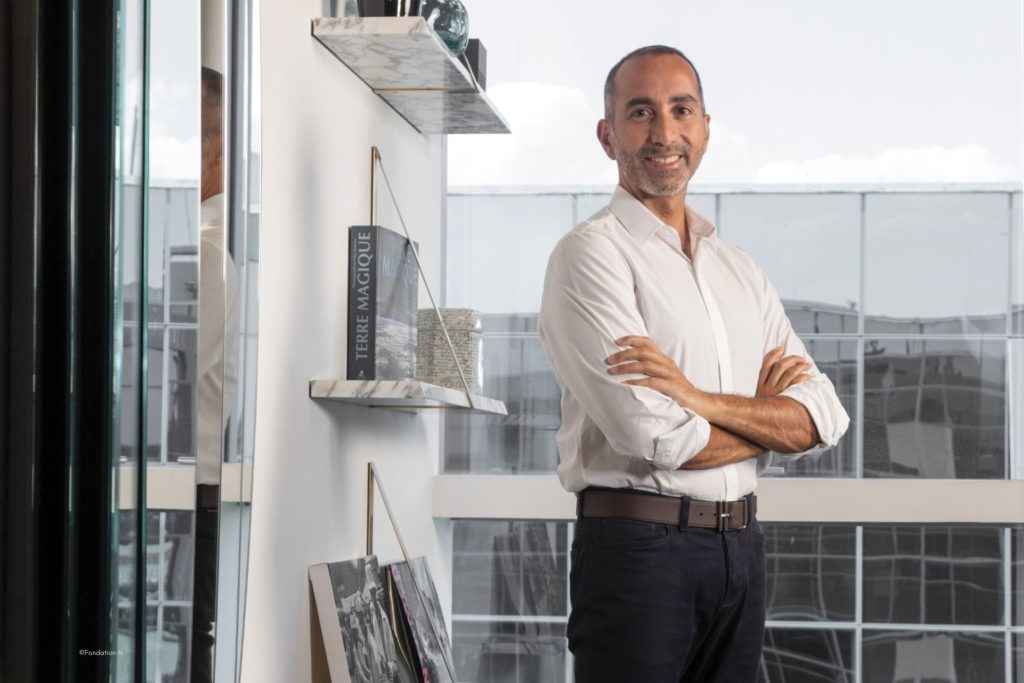
Hassanein Hiridjee, CEO of Axian Group, is a prominent figure in the Indian Ocean and African business scene. Under his leadership, Axian Group has transformed remarkably into a significant player in telecommunications, financial services, fintech, and energy. Originally known as the Hiridjee Group, Axian was renamed in 2015 with the ambition to become an African leader in key sectors for sustainable transformation across the continent. The group employs nearly 8,000 people and generated $2.5 billion (€2.2 billion) in revenue in 2023.
Hiridjee’s bold vision emphasizes Africa’s need for a robust entrepreneurial ecosystem, advocating for a tenfold increase in African companies with over $1 billion in revenue. His strategy is based on innovation and inclusion to bolster the continent’s economic resilience. Axian operates in 17 African and Indian Ocean countries and is known for its commitment to sustainability and social responsibility. Through the company WeLight, Axian runs the largest solar farm in the Indian Ocean, using mini-grid technology to provide clean energy to underserved rural communities.
A passionate art patron, Hiridjee also opened a 42 campus in Antananarivo, as part of the world’s largest network of coding schools initiated by Xavier Niel. His leadership exemplifies a balance of economic performance and social impact for the benefit of the continent.
Arnaud Lagesse
CEO of IBL Ltd
Mauritius
Banking and Financial Services / Industry / Construction / Engineering / Energy / Retail / Real Estate / Hospitality / Health and Biotechnology
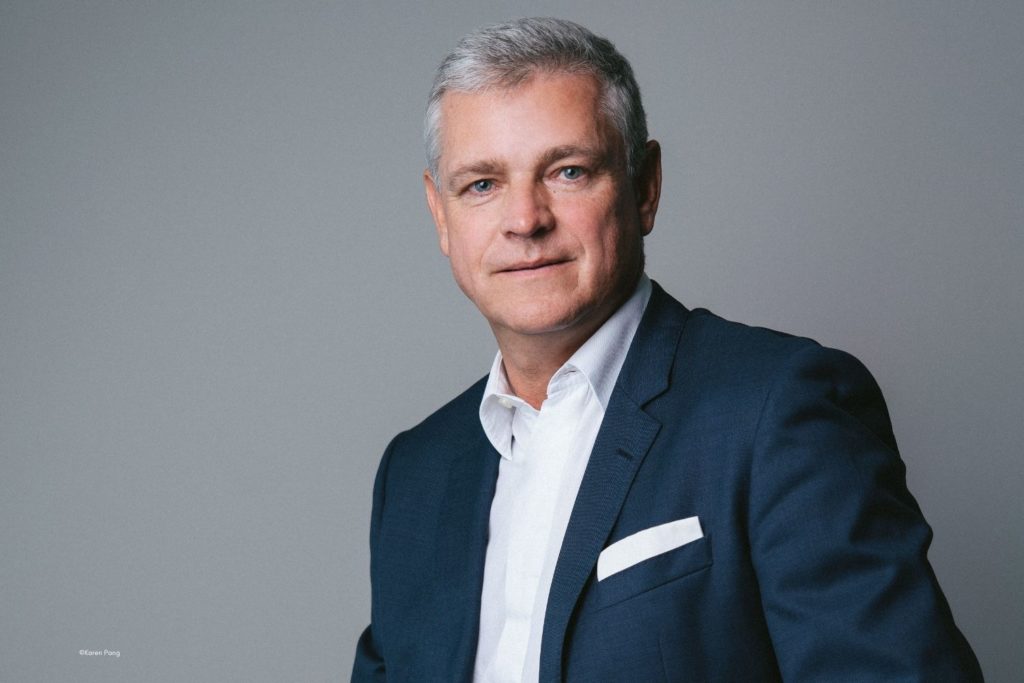
At the helm of IBL Ltd, one of Mauritius’s major conglomerates, Arnaud Lagesse stands out as a leading figure in the Mauritian private sector. In 2007, he succeeded his father, Cyrille, and his grandfather, Joseph, as head of this economic powerhouse dating back nearly 200 years. He initiated the merger of GML Investissement Ltée and Ireland Blyth Limited in 2016, creating IBL Ltd, which quickly became Mauritius’s largest group and second largest in the region (excluding South Africa), employing 38,282 people.
On June 30, 2023, the group’s revenue surpassed 50 billion rupees (almost €990 million), with net profits close to 5 billion rupees (about €100 million). By Q1 2024, the conglomerate recorded a revenue milestone of 77.8 billion rupees (around €1.8 billion), up 92% from the previous year. Lagesse’s proactive strategy includes expansion through IBL’s “Beyond Borders” initiative, focusing on renewable energy, healthcare, and strategic international markets.
Hasnaine Yavarhoussen
CEO of Filatex Group
Madagascar
Industries
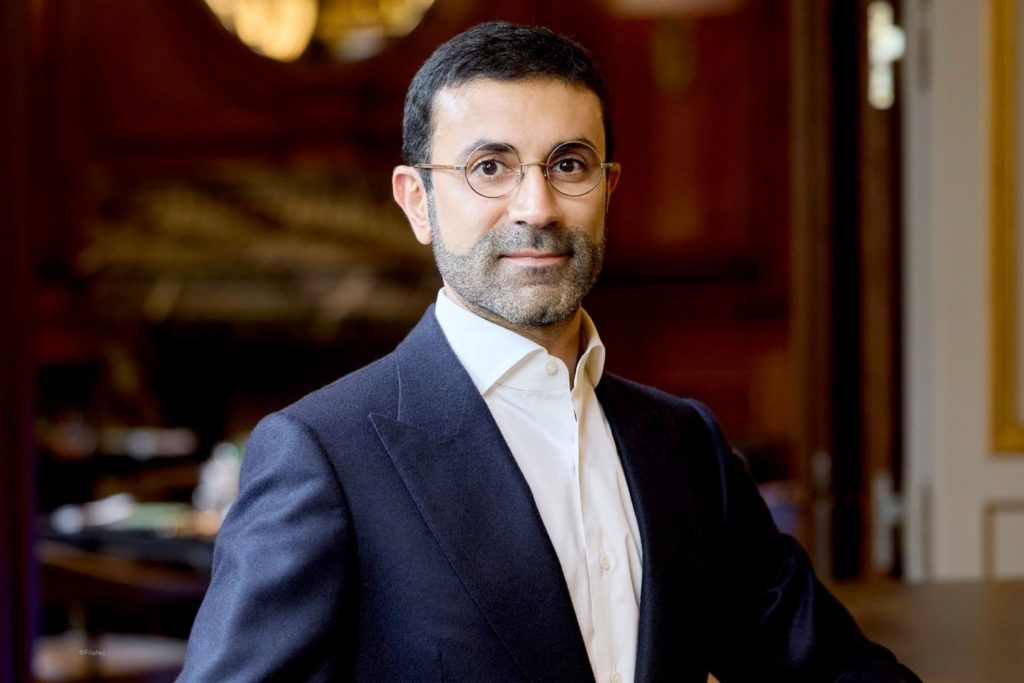
Representing a new generation of African entrepreneurs, Hasnaine Yavarhoussen, 38, has transformed his family business into a robust industrial player in premium real estate, renewable energy, and port infrastructure. Filatex has built over 250,000 square meters of real estate, creating more than 15,000 jobs in Madagascar.
Yavarhoussen is also engaged in cultural patronage through the fund he established in 2019, and he has supported numerous artistic projects in Madagascar, including the opening of Hakanto, a 300-square-meter art space in the capital. The group’s annual revenue is €300 million, with plans to expand into Ghana, Guinea, and Côte d’Ivoire.
THE YOUNG SHOOTS
Mohamed Laghrari
CEO of Al Hoceinia Holding
Morocco
Real Estate / Hospitality / Agriculture / Education / Financial Investments
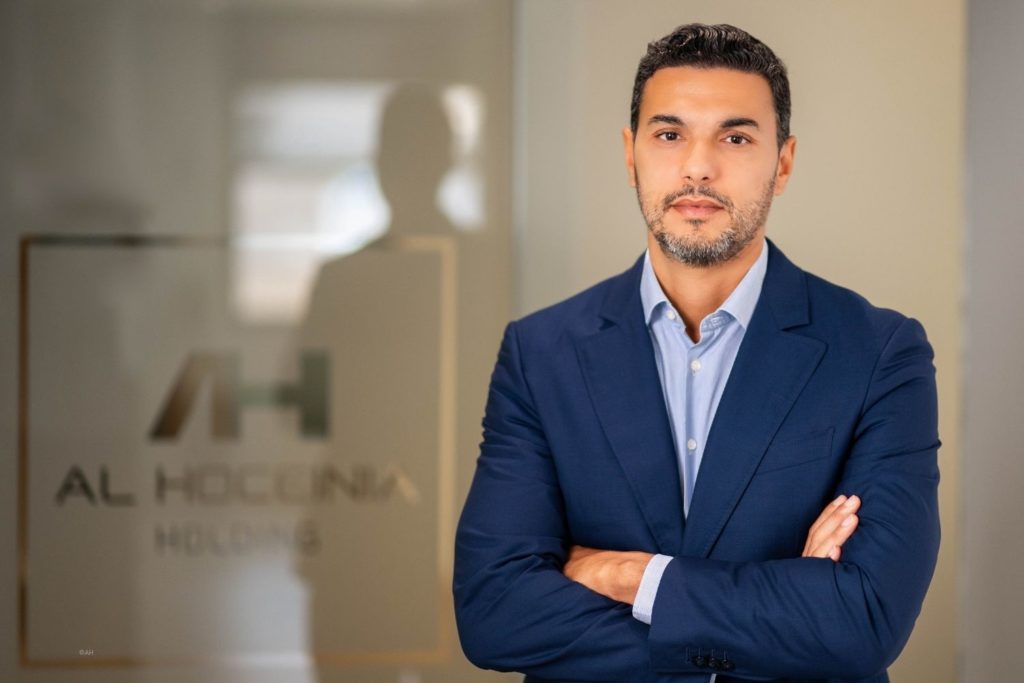
Mohamed Laghrari is the CEO of AH Holding, a multi-sector group established 60 years ago, known for its expertise and pioneering role in the economic development of Morocco and international markets. After earning a bachelor’s and master’s degree in business administration from IFM Business School in Geneva, this business leader began his career in the Alternative Investments department of a Swiss bank as a hedge fund analyst before joining AH Holding as the head of Real Estate. Under his leadership, the group developed over 28,000 units across Morocco, with major projects in Casablanca, Marrakech, Cabo Negro, Tangier, Agadir, and Safi. He also led the internationalization of the real estate division through the creation of the AH Africa subsidiary in 2021. Through this entity, the group is exploring new markets and strengthening its continental presence, with three projects totaling 2,000 units underway in Senegal and Côte d’Ivoire, where AH Africa is headquartered.
Promoted to CEO of AH Holding in 2022, Laghrari is driving the group’s diversification. AH Holding, which projects a revenue of 700 million dirhams (65.2 million euros) for 2024, is investing 3.5 billion dirhams (326 million euros) in ongoing projects, employing 1,100 staff and working on an additional 4,400 units. The company is expanding into high-value sectors such as hospitality, agriculture, and education, aiming to reach 600 hotel beds by 2025 through its AH Hospitality subsidiary. An initial partnership with Radisson Hotel Group has been signed, with the first hotel opening in Casablanca (Radisson Casablanca Gauthier La Citadelle) in April 2024, with more planned for Marrakech, Casablanca, and Tangier. AH Holding’s governance strategy, established in 2005, is based on steady growth and participatory decision-making, essential for its international expansion.
Gilles Tchamba
CEO of L’Archer Group
Republic of Congo
Banking Industry
Gilles Tchamba, CEO of L’Archer Group, is a recognized entrepreneur and financier in financial innovation in Central Africa. Born in 1985 in Brazzaville, he founded L’Archer Capital (rebranded as L’Archer in September 2024) in 2021 to meet the growing financing needs in the CEMAC region (Central African Economic and Monetary Community). In under three years, the company has become a key player in brokerage and asset management in the region.
A graduate of the School of Management and Business Administration (ESGAE) in Brazzaville in 2009, Tchamba began his career as a teacher at the same school before entering the banking sector in 2011, holding key positions at Ecobank and United Bank for Africa (UBA). During this period, he honed his expertise in asset management and revenue diversification—skills that proved critical to L’Archer’s success.
Under his leadership, L’Archer has organized about 30 complex operations, raising nearly 2 trillion CFA francs (3 billion euros) for various CEMAC countries. With around 60 employees and two subsidiaries, the group has also expanded its scope by offering innovative asset management solutions and savings products, such as the Serenity Savings Plan, aimed at both formal and informal sectors. With a strong pan-African vision, Tchamba aims to extend L’Archer’s activities beyond CEMAC, increasing the company’s global influence.
THE PATRIARCH
Gervais Koffi Djondo
Founder of Ecobank and Asky Airline, Chairman of the Board of Asky
Togo
Banking Industry / Air Transport
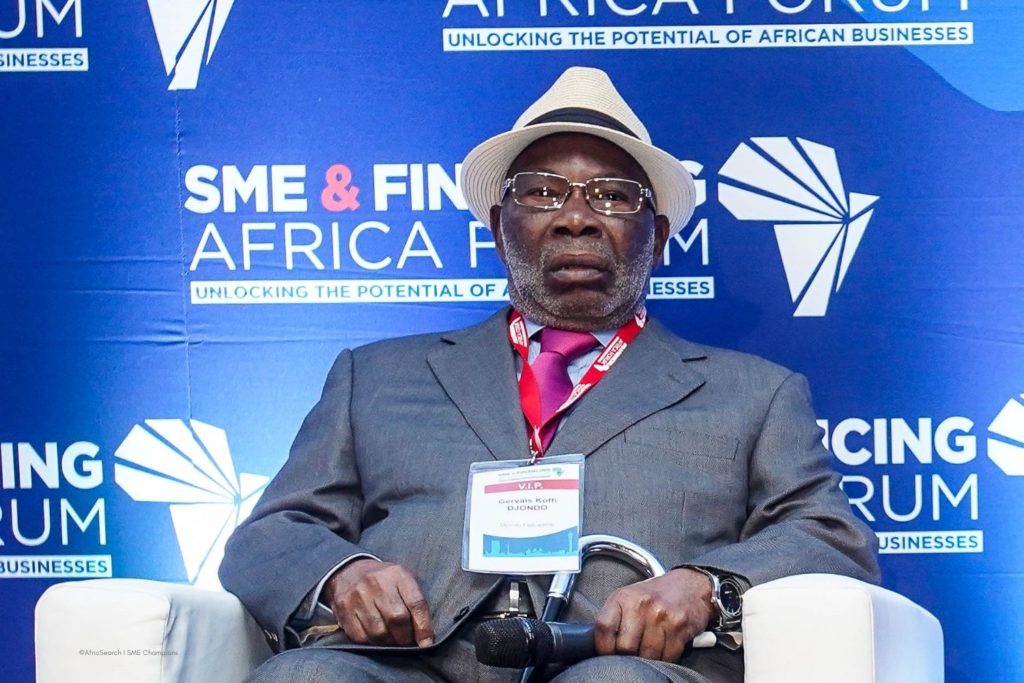
Secluded in his luxurious property in Djondo-Condji, a village founded by his ancestor near the Benin border, the Togolese Gervais Koffi Djondo, 90, remains a pioneer and an unquestionable industry leader whose journey inspires generations of Africans.
An accountant by training from the French Overseas School and the Institute of Labor Social Sciences in Paris, he served as Togo’s Minister of Industry in 1984 under Eyadema’s rule. Known as “the man with the hat,” Djondo gained prominence by launching two flagship pan-African enterprises: Ecobank and Asky Airline.
In the 1970s, he held various positions within the Togolese administration and contributed to creating the Federation of West African Chambers of Commerce. From his encounter with Adeyemi Lawson, president of the Nigerian Chamber of Commerce, the Ecobank project was born in 1985—a pan-African bank led by Africans, now operating in 35 countries. In 2010, this committed pan-Africanist established Asky, a regional airline succeeding the legendary Air Afrique, which had dissolved in 2002. Nearly 15 years later, Asky, serving 27 destinations in 25 African countries, surpassed a revenue of 200 billion CFA francs (300 million euros) and began paying dividends to shareholders. Last year, the Togolese state invested 6 billion CFA francs (9.1 million euros) to acquire a 14.39% stake. Djondo serves as chairman of the board of Asky, achieving success in a sector dominated by small, locally flagged carriers struggling with heavy losses. In 2019, this respected business figure published his memoirs under the title Africa First.
ANALYSIS
A Typology of Major Business Leaders in Francophone Africa
Jean Kacou Diagou, Oumar Sow, Othman Benjelloun, Arnaud Lagesse, Ylias Akbaraly… In Francophone Africa, these names are synonymous with remarkable entrepreneurial success and significant influence. Leadership here, perhaps even more than in the West, is often centralized, resting on traditional family structures that emphasize the role of the “chief” and seniority.
However, this centralization can also become a hindrance: reluctance to delegate and idealizing the leader as a protective figure can stifle a company’s ability to evolve. Innovation emerges from debate, idea exchanges, and diverse experiences.
Many leaders featured in this report promote collective decision-making, relying on executive committees, boards of directors, and external consultants. They recognize that shared governance is not only beneficial but essential to expand their vision, enhance performance, and strengthen the company’s leadership. Family businesses play a vital role in Francophone Africa’s economy, supported by generations of entrepreneurs with a deep understanding of local issues.
To become the leaders they are today, the family businesses highlighted in this report have diversified their governance by integrating the necessary talent and practices for expansion.
Local Values
It’s common to see “heirs” supported by experienced executives who have risen through the company ranks or were recruited after international careers, bringing a global perspective and specialized skills. Additionally, the new generation of family business leaders often chooses to study abroad, blending historical practices with modern international standards (corporate social responsibility, access to financing, effective management practices, ethical governance). This duality reinforces the competitiveness of family businesses, aligning them with global market demands and securing their long-term sustainability and prosperity.
In an environment marked by significant political and economic volatility, attachment to local values — such as mutual assistance and “giving back” — remains strong, influencing management models based on interconnection and community consensus.
For these leaders to thrive, they must not only adapt to local realities but also create effective strategies to mitigate risks and seize opportunities. This duality allows innovation to coexist with tradition, enabling their businesses to meet modern demands while staying rooted in their social fabric. This skillful navigation between these two worlds has been crucial to the success of our “Top CEOs” in Francophone Africa. Their ability to embody this harmony not only ensures the longevity of their businesses but also places them at the forefront of the region’s economic development.
Disclaimer: No edits have been made to this article, which has been translated in English from French, as originally published in Forbes Afrique.
Loading...
